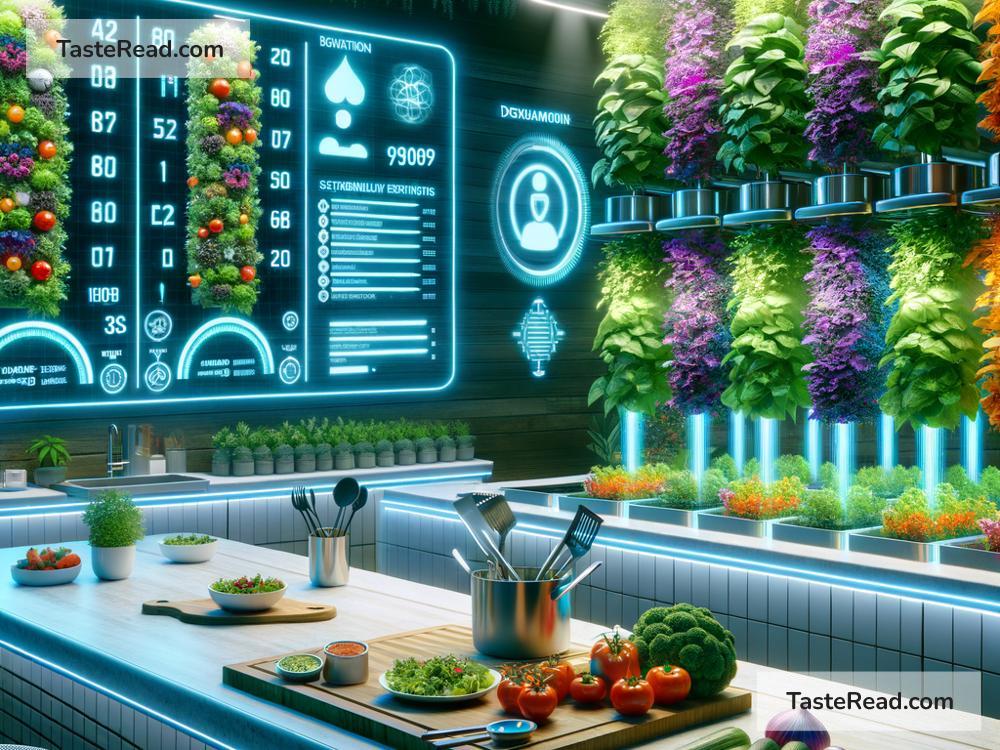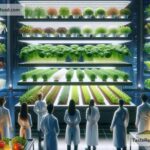The Future of Food and Social Enterprise: A Path to a Better World
Food is one of life’s essentials. It fuels our bodies, shapes our cultures, and brings people together. But today, the way we grow, produce, and share food is facing big challenges. From climate change to food waste, hunger to health problems, the food system has room for improvement. At the same time, social enterprises—businesses that aim to solve social problems—are stepping in to make a difference. Together, the future of food and social enterprise looks bright, with exciting possibilities to create a healthier planet, stronger communities, and fairer opportunities.
The Problem with Food Today
The global food system has many problems. Millions of people go hungry every day, even though others waste enormous amounts of food. According to the United Nations, about one-third of all food produced globally is wasted. At the same time, growing food often harms the planet. Farmers use too much water, fertilizers, and pesticides, which pollutes the environment. Climate change makes farming harder, as droughts, floods, and extreme weather hurt crops.
On top of this, what we eat is also causing health problems. Junk food and sugary drinks have made obesity and diabetes common in many countries. And small farmers, who grow much of the world’s food, often struggle to earn enough money because big businesses control the market. These are huge issues, but the good news is that people and social enterprises are already working on solutions.
What Is a Social Enterprise?
Social enterprises are businesses with a mission. Their main goal isn’t just to make profit, but to create positive change for people and the planet. Social enterprises use creative and sustainable ideas to tackle real-world problems. Unlike charities, they earn money by selling products or services, so they’re able to keep growing long-term while helping their communities.
In the world of food, social enterprises are taking action to fight hunger, improve farming practices, reduce food waste, and build healthier eating habits. Their work shows us what the future of food could look like—better for everyone.
The Role of Social Enterprise in the Future of Food
Social enterprises are shaping the future of food in many creative ways. Let’s take a look at some of the areas they’re transforming:
1. Tackling Hunger
Millions of people live without enough to eat, but social enterprises are finding new ways to bring nutritious food to those who need it most. Food banks, community kitchens, and mobile apps are helping connect surplus food from restaurants or stores to hungry families. One example is the organization Too Good To Go, which lets users buy leftover food from restaurants at a discount, reducing waste and feeding people at the same time.
2. Reducing Food Waste
Food waste is not only a waste of resources, but it also creates harmful greenhouse gases as rotten food sits in landfills. Social enterprises are addressing this issue through smart technologies, education campaigns, and recycling innovations. For example, Rubies in the Rubble creates delicious condiments using fruit and vegetables that would otherwise be thrown away.
3. Supporting Small Farmers
Small farmers grow much of our food, but they often face unfair competition from big corporations. Social enterprises are stepping in to support them. Through fair trade practices, training programs, and access to modern tools, farmers can earn a fairer living and grow food more sustainably. Organizations like Grameen Foundation work with farmers in developing countries to provide financial services, mobile technology, and knowledge to improve their productivity.
4. Transforming Urban Areas
With cities growing rapidly, social enterprises are working to make urban areas greener and more self-sufficient. Initiatives like vertical farming, rooftop gardens, and community greenhouses are bringing fresh produce closer to city dwellers. These efforts reduce transportation costs, minimize carbon footprints, and promote healthier eating habits.
5. Innovating Food Production
The way we produce food is also changing. New ideas like lab-grown meat, plant-based protein, and sustainable aquaculture are reshaping how we think about food. Social enterprises are leading the charge, using technology to create healthy and eco-friendly alternatives. For example, companies like Impossible Foods and Beyond Meat are inventing plant-based products that taste just like meat, giving people environmentally friendly options without sacrificing taste.
6. Education and Awareness
Another key focus for social enterprises is teaching people about food. They are raising awareness about healthy eating and the impact of our choices on the planet. Programs in schools, online campaigns, and community workshops are helping people make smarter food choices for themselves and the environment.
What Can We Do to Help?
The future of food and social enterprise is exciting, but it’s something all of us can play a part in. Whether it’s choosing to buy from local farmers, supporting businesses that fight waste, or simply being mindful of what we eat, small actions add up to big changes.
We can also spread the word and stay informed. Keeping an eye out for innovative projects and supporting social enterprises in the food industry can help create positive change faster. Together, we can promote food systems that are fair, sustainable, and inclusive.
Conclusion
The future of food and social enterprise is all about balance—making sure everyone has enough to eat while protecting the planet for future generations. Social enterprises are already leading the way, showing us how creative thinking and compassion can solve tough problems. By tackling hunger, reducing waste, and driving innovation, these businesses are setting the stage for a better tomorrow.
As consumers, we hold the power to support these efforts and make smarter food choices every day. The journey toward a sustainable food future is not just for social enterprises; it’s for all of us. Together, we can build a world where food and business work hand in hand to make life better for everyone.


